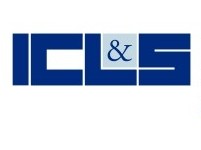
Heyman Center for the Humanities, Columbia University
Center for the Study of Social Difference, Institute for Comparative Literature and Society
Motherhood and Technology: “Conception and Its Discontents”
Registration is required, and can be found here.
To view full, up-to-date information about this conference, please visit the website for the Center for the Study of Social Difference.
A conference hosted by the Motherhood and Technology Working Group at the Center for the Study of Social Difference on the theme of “Conception and Its Discontents.”
Medical technologies have radically transformed the biological and social experience of motherhood. Advances in genomic and reproductive care, the circulation of novel kinship structures, the entrenchment of existing global networks of power and privilege, and the politics of contested bodily sites mark this emerging constellation.
Technological advancements have in particular impacted not just the understanding of conception, but the very process by which a human embryo is created, implanted, and matured. Egg freezing, embryo storage, IVF, and surrogacy afford women new freedoms in choosing when and how to become mothers, while also raising troubling questions about the pressures of capitalism and the extension of worklife, as well as the global inequalities present in the experience of motherhood. In addition, technologies have arisen allowing for unprecedented control over not just who becomes a mother, but what kind of embryo is allowed to be implanted and to grow. Technologies such as CRISPR and NIPT have re-introduced the question of eugenics, radically shifting the very epistemology of motherhood and what it means to be “expecting.” And contemporary abortion debates draw on technology in order to make arguments both for and against access, with imaging technologies being instrumentalized in the building of a sympathetic case for the unborn, and the very notion of a “heartbeat bill” reliant on the misreading of technologies for measuring fetal activity.
While these problems are urgent today, questions of conception and technology are by no means recent developments. The 18th century saw a flourishing of philosophical and scientific theories regarding the start of human life and its formation within the womb. Such theories relied on modern technologies, such as autopsy, to atomize and visualize the body. In the 19th and 20th centuries, eugenic medical science produced theories of reproductive difference between differing racial and social groups, leading to forced sterilization laws in both the US and in Germany. This long history of racializing the rhetoric of fertility and motherhood continues to influence political debates on immigration and demographic changes in the present.
DRAFT Conference Schedule
Monday May 8-Tuesday May 9, 2023,
Location: Heyman Center for the Humanities
Columbia University
MONDAY MAY 8
8:45 am Welcome: Rishi Goyal and Arden Hegele (Columbia)
9:00 am PANEL 1: Surrogacy: Perils and Pitfalls of the 2021 NY State Law Permitting Commercial Gestational Surrogacy
Nancy Reame (Columbia University, Department of Nursing): “Not Your Grandmother’s Surrogacy: Looking Back to Better Move Forward”
Wendy Chavkin (Mailman School of Public Health) and Linda Kahn (NYU School of Medicine):
“Concerns and Recommendations for Legislative Amendments to
Improve the Rights of All Third-Party Participants in Commercial Gestational
Surrogacy in NY State.”
Diana Namumbejja Abwoye (Our Bodies, Ourselves Today): “Surrogacy360: a
Global Perspective on Commercial Surrogacy”
Alison Motluk (freelance journalist): “What can New York Learn from Surrogacy in Ukraine and
Canada?”
Yasmine Ergas (Columbia, SIPA): “Must We Be Pragmatists?”
11:00 am PANEL 2: Historical Perspectives on Conception
Chas Firestone East (Columbia): “The Ensoulment of the Embryo in the Passive Receptacle of the
Mother: Philosophical Views of Embryology in Aristotle, Galen, Aquinas, and Dante”
Mansi Garneni (Columbia): “An Intersectional Reading of Long 18th Century Women
Niyati Shenoy (Columbia): “The Missionary’s Position: Pursuing Abortion Doctors in Colonial India”
Lilith Todd (Columbia): “Forget It: A Literary History of IUDs”
1:30 pm PANEL 3: Technologies of Reproduction
Rosemary O’Mahony (Columbia): “Algorithms, Apps, and Abortion: U.S. Law and Pregnancy in the
Age of Data Privacy”
Jessica Gantt-Shafer (U Missouri-Kansas City): “Immaterial Intimacy: Digital, Neoliberal Labor in
Reproductive Justice Direct Service Organizing”
Rose Rowson (Brown): “Imaging the Digital Native: Ultrasound Technology in the History of Personal
Computation”
Stefanie Sobelle (Gettysburg College): “Follicular Speculation”
3:30 pm PANEL 4: Exploring Canadians’ Experiences of Assisted Reproduction: A Snapshot of Current Empirical Research Studies
Stefanie Carsley (U Ottawa): “Surrogacy Laws in Canada: Exploring Intended
Parents’ Experiences and Perspectives”
Vanessa Gruben (U Ottawa), Alana Cattapan (U Waterloo), Stefanie Carsley (U Ottawa): “Surrogates’
Voices: Exploring Surrogates’ Experiences and Insights”
Alana Cattapan (U Waterloo), Vanessa Gruben (U Ottawa), Kathleen Hammond (Toronto Metropolitan
U): “Ova Obscura: Egg Donors in Canada”
Kathleen Hammond (Toronto Metropolitan U) and Alana Cattapan (U Waterloo): “Elective Egg
Freezing in Canada: Towards Appropriate Regulation Governing Consent.
TUESDAY MAY 9
9:00 am PANEL 5: Testing and the Law from Conception to Birth
Karen Weingarten (Queens College, CUNY): “Pregnancy Testing Before and After Roe”
Shana Riethof (U Liège): “Sex in Limbo: NIPT and the (in)Determination of Fetal Sex in Belgium”
Megan Glasmann (U Utah): “Misreading Medicine: Statutory Prohibitions of Abortion for Disability”
11:00 am PANEL 6: Narrative and Cultural Technologies of Reproduction
Sabina Dosani (U East Anglia): “Products of Conception, Imaging, and Imagining the Maternal-Foetal
Relationship”
Jess Gallagher (Columbia): “The Disabled (M)other: Critiquing Cultural Constructions of Motherhood
in the Age of the ‘Post-Nuclear’ Family”
Diana Novaceanu (U Bucharest): “Self-Unveiling: Techno-Maternal Ambiguities in Contemporary
Visual Arts”
Laura Crook (UNC-Chapel Hill): “The Experiences of Pregnancy, Delivery, and Newborn Parenting
during COVID-19 as Understood through Metaphor.”
12:30 pm Concluding Remarks (CSSD Board)







